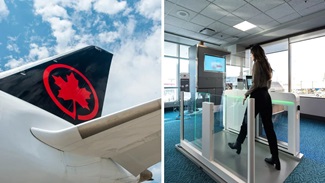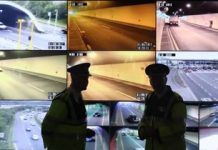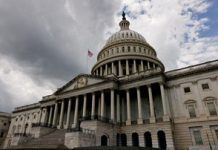Air Canada, Canada’s largest airline, has become the first airline in the country to offer customers facial recognition technology for digital identification. The pilot project is currently available at Vancouver International Airport (YVR) and at Toronto Pearson International Airport, with plans to expand digital identification options to other Canadian airports and Maple Leaf Lounges.
A promotional video explains that the user takes a photo of a passport or driver’s licence, scans the NFC chip, and submits a video selfie for biometric matching.
“Air Canada’s pilot project will speed up processes at YVR, and other airports where it’s established, while respecting robust privacy measures and security standards. This project has great potential in making gate boarding easier and faster for Canadian passengers, while maintaining strong safety measures,” says Omar Alghabra, Canada’s Minister of Transport.
According to Air Canada, eligible customers flying from Vancouver to Winnipeg and those using the Air Canada Café in Toronto will be invited to use digital identification for faster, more secure processing. Alternative options are available for those who wish to manually check-in or scan their boarding passes.
Air Canada’s digital identification feature enables customers to securely store biometric data on their mobile phones. Customers must provide additional consent for the data to be used day-of-travel and will be retained for up to 36 hours, in compliance with Air Canada’s privacy and security standards, the company says.
“Customers choosing to use digital identification will benefit from a simplified and seamless process at the gate and when entering our Maple Leaf Lounges,” says Craig Landry, the executive vice president and chief operations officer at Air Canada.
Air Canada’s digital identification is a voluntary program separate from government-sponsored initiatives such as NEXUS, Global Entry or U.S. CBP Mobile Passport Control (MPC).








